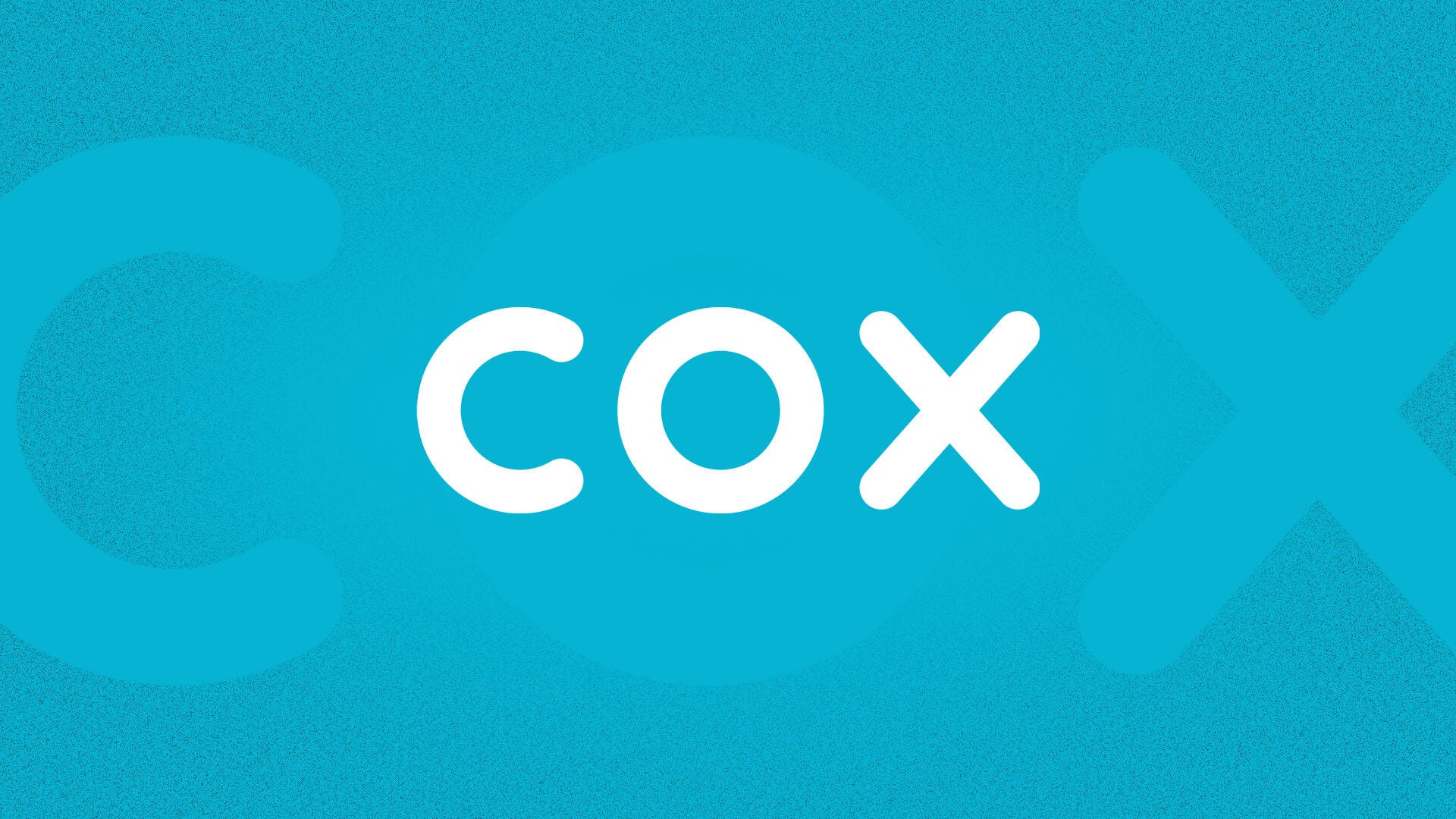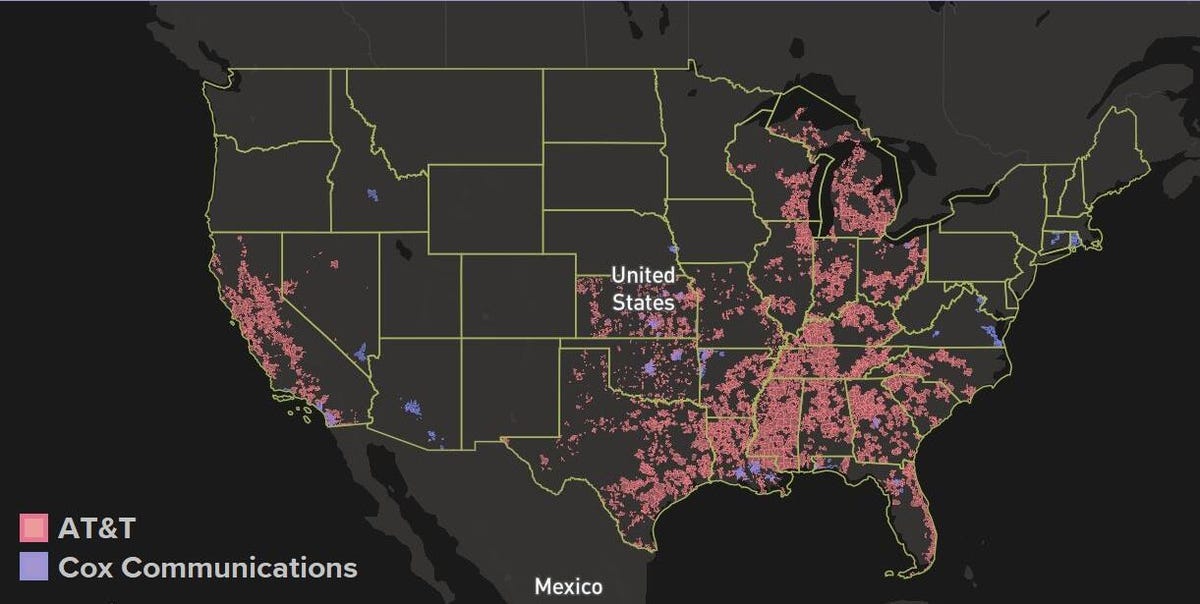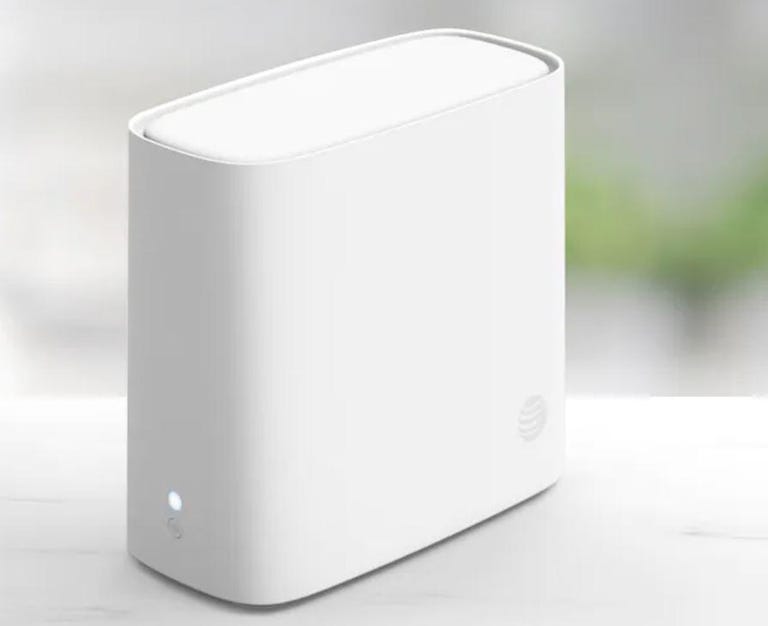Although AT&T and Cox have different availabilities across the country, both are concentrated in cities across the South and Midwest, putting them in direct competition with each other. So which provider should you choose?
It depends. AT&T’s fiber plans are some of the best deals you’ll find on home internet — but those plans have limited availability, and AT&T’s alternatives are much slower. Meanwhile, Cox’s cable plans offer plenty of speed of their own, shooting up to gigabit speeds across Cox’s entire coverage map — but there’s fine print to watch out for concerning Cox’s data caps and promotional prices.
Read on for an in-depth examination of how these internet providers measure up to each other, including a close comparison of each provider’s plans, prices, terms, availability and customer service track record.

Our take – AT&T’s internet service is available in 22 states and to nearly 21 million households nationwide. If you can get AT&T Fiber, you’re on solid ground — it provides excellent value and ranks high on customer satisfaction surveys. If you can only get AT&T Internet, a DSL hybrid, you might want to consider other options. AT&T also rolled out AT&T Internet Air, a fixed wireless internet solution that relies on 5G to get customers online. It’s a good option, especially when you’re limited to DSL or satellite internet, but overall, speeds range from 75 to 225Mbps. For context, AT&T Fiber starts at 300Mbps and only goes up from there.

Our take – Cox Communications can boast that it’s the “largest private telecom provider in the country,” but that doesn’t necessarily make it the best. Cox features gigabit speeds across its entire 19-state footprint (something AT&T can’t claim), but there are data caps and some looming price increases down the road that should make customers wary.
AT&T vs. Cox: Availability and coverage areas

AT&T is the clear winner here thanks to its extensive network of DSL connections and its fixed wireless service, both of which reach a fair number of rural areas. Others across the service map, which covers 21 states in the South, West and Midwest, will find access to AT&T’s much faster fiber plans.
According to the latest data from the FCC, AT&T fiber plans were only available across roughly 31% of the provider’s footprint. AT&T wouldn’t share more recent coverage specifics than that, but a company spokesperson tells us that the number continues to increase.
As for Cox, the company sells the same cable internet plans wherever it offers service. Coverage is much more focused than AT&T and mostly limited to urban and urban-adjacent areas scattered across 19 states. Among other areas, coverage between the two providers overlaps in the following cities:
- Fayetteville, Arkansas
- Irvine, California
- San Diego, California
- Gainesville, Florida
- Macon, Georgia
- Topeka, Kansas
- Wichita, Kansas
- Baton Rouge, Louisiana
- New Orleans, Louisiana
- Cleveland, Ohio
- Oklahoma City, Oklahoma
- Tulsa, Oklahoma
AT&T vs. Cox: Plans, speeds and monthly costs
What do AT&T and Cox charge for home internet service, and how do their selection of speeds and plans stack up? Let’s take a look, starting with AT&T:
AT&T home internet plans
| Plan | Max speeds | Starting monthly rate | Monthly equipment fee | Monthly Data Cap |
|---|---|---|---|---|
| AT&T Fixed Wireless Read full review |
25Mbps download, 1Mpbs upload | $70 | None | 350GB |
| AT&T Internet 10 Read full review |
10Mbps download, 1Mpbs upload | $70 | None | 1.5TB |
| AT&T Internet 18 Read full review |
18Mbps download, 1Mpbs upload | $70 | None | 1.5TB |
| AT&T Internet 25 Read full review |
25Mbps download, 2Mpbs upload | $70 | None | 1.5TB |
| AT&T Internet 50 Read full review |
50Mbps download, 10Mpbs upload | $70 | None | 1.5TB |
| AT&T Internet 100 Read full review |
100Mbps download, 20Mpbs upload | $70 | None | None |
| AT&T Internet Air Read full review |
225Mbps download, 30Mpbs upload | $60 | None | None |
| AT&T Fiber – Internet 300 Read full review |
300Mbps download, 300Mpbs upload | $55 | None | None |
| AT&T Fiber – Internet 500 Read full review |
500Mbps download, 500Mpbs upload | $65 | None | None |
| AT&T Fiber – Internet 1000 Read full review |
940Mbps download, 880Mpbs upload | $80 | None | None |
| AT&T Fiber – Internet 2000 Read full review |
2Gbps download, 2Gbps upload | $145 | None | None |
| AT&T Fiber – Internet 5000 Read full review |
5Gbps download, 5Gbps upload | $245 | None | None |
Show more (7 items)
With AT&T, your monthly rate will range from $55 to $245 per month, depending on your plan and, in some cases, whether or not you’re in your first year of service (when some plans come with a discount). Also, keep in mind that if you’re in a market where AT&T Fiber is available, you’ll have access to the company’s fastest plans and best rates, including new multigigabit offerings.
OK, one down — now let take a look at what Cox offers:
Cox home internet plans
| Plan | Max speeds | Regular monthly rate | Monthly equipment fee | Monthly data cap |
|---|---|---|---|---|
| ConnectAssist | 100Mbps download, 10Mbps upload | $30 | $15 (optional) | 1.25TB |
| Go Faster Internet | 250Mbps download, 10Mbps upload | $50 | $15 (optional) | 1.25TB |
| Go Even Faster | 500Mbps download, 10Mbps upload | $70 | $15 (optional) | 1.25TB |
| Go Super Fast | 1,000Mbps download, 35Mbps upload | $80 | $15 (optional) | 1.25TB |
| Go Beyond Fast | 2,000Mbps download, 35Mbps upload | $120 | $15 (optional) | 1.25TB |
Show more (0 item)
Cox plans range in price from $30 per month to as high as $120 per month, depending on the specific plan and whether or not you’re still in your first-year promo period. The monthly equipment rental fee of $15 is an additional charge, which you don’t face with AT&T, but Cox lets you skip it by using your own equipment, which is an option that can potentially save you money over the long run.
Just be sure to note the higher-than-average price jumps with Cox. Although Cox recently did away with contracts and promises at least a two-year price lock for most plans, your bill will increase by as much as $30 to $40 after your second year of service.
AT&T vs. Cox: Which is a better home internet value?
If AT&T’s fiber plans are available at your address, you should strongly consider signing up because they offer some of the best value on home internet from any provider we’ve evaluated.
For instance, AT&T’s 300Mbps fiber plan costs just $55 per month, which is just over 18 cents per Mbps. At first glance, Cox’s option for 250Mbps for $50 a month seems the better deal, but the cost per Mbps of that tier comes to an even 20 cents per Mbps — and that’s only if you’re able to skip the equipment rental fee. If you factor in the cost of equipment, you’re looking at 26 cents per Mbps. AT&T’s other fiber speed tiers offer even better value relative to the competition.
If AT&T doesn’t offer fiber plans in your area, you’ll have to settle for the company’s fixed wireless service, 5G internet service or its DSL plans, a hybrid technology that combines a phone-line-based digital subscriber line with copper wiring. The fastest of these plans offers download speeds of up to 100Mbps for $70 per month (70 cents per Mbps). In that case, the 250Mbps Cox plan I mentioned above would be the better value, with faster speeds for a lower price per Mbps.
AT&T Fiber is the best deal here by far, but Cox’s cable internet offers slightly better value than AT&T’s fixed wireless and DSL plans, despite costing a bit more.
AT&T vs. Cox: Fees and terms to expect
In terms of fees and the fine print on your monthly bill, AT&T offers slightly better clarity than Cox on a few service terms. Let’s get into it.
Installation fees
Both providers charge a one-time fee of $100 for professional installation, although AT&T only requires that charge for DSL plans. Cox lets you skip that fee by requesting an Easy Connect self-installation kit, which guides you through the setup process without needing a technician. AT&T offers free installation for customers on fiber or 5G internet plans.

AT&T no longer charges an additional fee to rent its modem/router gateway device.
Equipment fees
As mentioned before, Cox charges an equipment rental fee — $15 per month for its Panoramic Wifi gateway. Cox lets you skip the fee by using your own Cox-approved modem, but over at AT&T, the company’s gateway device is included in the monthly price.
Both providers offer optional range extenders that you can pair with the gateway to expand the range of your network. With AT&T, each one costs $10, but with Cox, they cost $130. Given that you’ll also be paying $15 per month for the gateway, opting for a mesh router of your own is a much better way to go.
Something else to keep in mind about Cox’s Panoramic Wifi gateway is that it will broadcast a second network separate from yours that other Cox customers can connect to as part of the company’s network of public hotspots. The feature is enabled by default.
Cox says that it won’t affect your home’s internet speeds or data usage, but I still wouldn’t blame you if you wanted to turn that network off. You’ll need to log in to your Cox account and head to the privacy settings to do so.
Does AT&T or Cox require contracts for a good price?
The short answer is no, neither AT&T or Cox require a contract for you to enjoy a promotional price or quick speeds. Cox recently veered away from contracts, opting instead for a 24-month “term agreement” to maintain a promotional price. The term agreement offers a price lock on the rate you initially signed up for but you’ll have to pay an early termination fee if you cancel service before the term is up. The charge is a hefty $240, but Cox will subtract $10 for every month completed during your term of service. Customers moving to a location outside of Cox service and customers with a Lifeline discount don’t have to pay that termination fee.
Data caps compared between AT&T and Cox
Both providers enforce them, but with a couple of key differences.
AT&T’s fiber and 5G plans don’t have any data caps, but the DSL and fixed wireless plans do. Specifically, the cap is set at 1.5TB (1,500GB) of data per month, and if you use more than that, you’ll be charged an extra $10 for each 50GB of excess, up to a maximum monthly penalty of $100.
Cox, meanwhile, enforces a data cap on all of its plans, including the multi-gig plans, and the penalties are the same as AT&T: $10 for every 50GB of excess data usage, up to a maximum of $100. Cox sets its data cap at 1.25TB (1,280GB), but the company will waive all your penalties the first month you go over that cap. That makes Cox’s caps a bit more manageable than AT&T’s — and it also means that Cox’s unlimited data bundles, which remove the cap for a semi-inflated additional fee that includes other services at full price, probably aren’t worth it for most customers.
AT&T vs. Cox on customer satisfaction


Internet providers have never been popular, but AT&T is a consistent winner in the category of customer satisfaction. According to the American Customer Satisfaction Index, AT&T Fiber ranked at the top of internet providers in both fiber and non-fiber categories with 80 out of 100. Meanwhile, in the non-fiber category, Cox came in with a slightly below-average score of 68, although this was four points better than last year. Notably, even AT&T’s non-fiber plans ranked just slightly better than Cox, with a score of 69.
Meanwhile, J.D. Power ranks internet providers for customer satisfaction across four separate regions in the US — and AT&T was the top-rated provider in two of the three regions it was included in, earning category-leading scores of 726 out of 1,000 in the North Central and 753 in the South region. Cox was a more uneven finisher in the three regions where it was scored, earning below-average ratings of 677 in the North Central, 702 in the South and 706 in the West.
What’s the choice between AT&T vs. Cox? Go with AT&T Fiber
If AT&T Fiber is available at your address, consider it your top option (and count yourself lucky). With excellent value, fast speeds and strong customer satisfaction scores, those fiber plans are some of the best in the industry, and you won’t need to sign a contract or worry about a data cap, installation fees or equipment fees.
AT&T’s fixed wireless, 5G internet and DSL plans are much less competitive, especially when you compare them with the fast download speeds available from a cable provider like Cox. Although Cox’s plans are the slightly more expensive option, you’ll be getting a much faster connection, along with data cap restrictions that are more manageable than what AT&T enforces with those fixed wireless and DSL plans. All of that makes it the superior choice if fiber isn’t an option.
AT&T vs. Cox FAQs
Is Cox Internet cheaper than AT&T?
Cox offers an affordable internet option, ConnectAssist, but both internet providers offer starting rates at around $50 to $55 monthly with Cox offering 250Mbps for $50 a month and AT&T Fiber offering 300Mbps for $55 a month. If you evaluate the cost per Mbps of each plan, although it seems like Cox is slightly cheaper, it actually costs 20 cents per Mbps. Including the cost of equipment rental ($15 monthly), that cost jumps to 26 cents per Mbps.
Comparatively, for $55 a month, AT&T’s cost per Mbps for its entry-level fiber internet comes out to 18 cents per Mbps — making AT&T the more cost-efficient option.
If you can qualify for ConnectAssist with Cox, you can pay just $30 a month for 100Mbps download speeds.
Is AT&T Internet faster than Cox?
If your address has access to AT&T Fiber, then yes, AT&T is faster than Cox. AT&T Fiber features symmetrical download and upload speeds: up to 1 gigabit in all serviceability areas and up to 5Gbps in select areas. Cox can match the gigabit download speeds, but it cannot match the upload speeds as a cable internet provider. One advantage to Cox: it offers gigabit speeds to all its serviceable addresses. AT&T, on the other hand, still has some areas where DSL is the only available connection option and speeds top out at 100Mbps in those regions.
Does either AT&T or Cox have fiber internet?
AT&T currently offers fiber internet to approximately a third of its footprint, which includes over 17 million households and over 100 different cities across the nation. It has aggressively pursued fiber as a large part of its future, with CEO John Stankey saying in May of 2021, that AT&T is “focused on investing in 5G and fiber to meet substantial, long-term demand for connectivity.” Cox, on the other hand, is predominantly a cable internet provider, with less than 6% of its network dedicated to a fiber connection, per the FCC’s most recent data.





